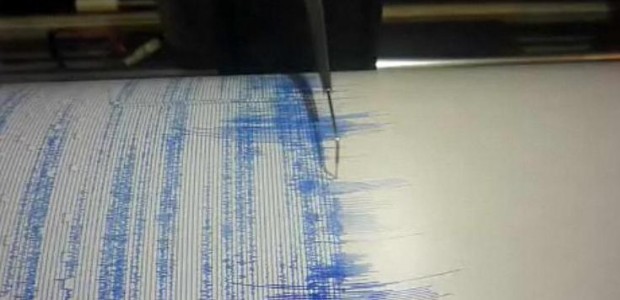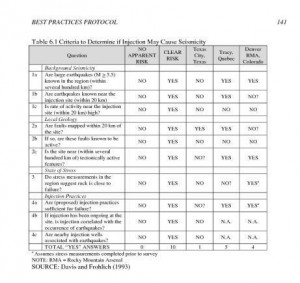What Texas Can Do About Oil and Gas-Related Earthquakes

Still image taken from video posted to Flikr Creative Commons by Waifer X. http://www.flickr.com/photos/waiferx/2658307394/
A seismograph measures feet stomping nearby at the Thomas A. Jaggar Museum in Hawaii
Three earthquakes in six days. Those were the surprising numbers that greeted Texans on Monday morning. What’s becoming less surprising is the notion that they could have been man-made. All three of the quakes (two near Dallas, one around San Antonio) happened near areas with extensive oil and gas excavation.
A scientific consensus is forming around the notion that wastewater disposal wells, a common byproduct of oil and gas drilling, are causing quakes. As that understanding grows, the debate has moved from what is causing the quakes to what policymakers should do about it.
Possible Solutions
Anti-fracking groups and anti-fossil fuel environmentalists might say the solution is simple: ban drilling and the accompanying disposal wells. On the other side of the debate is the argument that small quakes are nothing to worry about in the first place.
But other groups are looking for ways to continue oil and gas development while mitigating the quakes themselves.

The National Reproduced from Induced Seismic Potential in Engergy Technologies, from National Research Council http://www.nap.edu/openbook.php?record_id=13355&page=R1
A checklist from researchers Davis and Frolich was included in a recent report on the dangers of oil and gas related earthquakes.
A report out from the National Research Council referenced a nine year-old checklist of best practices for drillers and disposal well operators. That includes investigating the site’s history of earthquakes and its proximity to fault lines. But it included the observation that “government agencies and research institutions may not have sufficient resources to address unexpected (seismic) events.”
And at a hearing of the Texas House Committee on Energy Resources yesterday, state policymakers heard recommendations on what can be done to mitigate the risk of earthquakes.
Melinda Taylor was one of the experts to give testimony. Taylor directs of the Center for Global Energy, International Arbitration, & Environmental Law. She says other states have more safeguards in place against unwanted earthquakes.
In Ohio, for example, well operators need to do a “fairly detailed analysis of the geological conditions” before the state’s regulatory agency offers a permit to authorize a new disposal well. “So they can determine whether or not it’s likely to cause problems,” Taylor says.
Taylor also said the Texas Railroad Commission may want to consider mandating setbacks, to ensure greater distance between disposal wells and public drinking water supplies, structures, and natural resources. She says some states also have stricter rules surrounding how companies do seismic testing, a process that sometimes includes detonating explosives underground to look for natural gas pockets.
“Texas already has a requirement that seismic holes be plugged after they’ve been used for seismic testing,” Taylor told StateImpact Texas. “But again some states are looking at setback requirements, additional safety measures for storage of explosives, things like that.”While the current political winds in Austin tend to blow against expanded regulation, House Committee Chair Jim Keffer [R-Eastland] responded to Taylor’s testimony saying that earthquakes related to disposal wells “certainly has been an issue around this state. And that’s something I know the railroad commission is looking at.”
In an interview with StateImpact Texas, Dr. Cliff Frolich, the Associate Director of UT’s institute for Geophysics and an expert on man-made earthquakes, had one last suggestion how to mitigate unwanted quakes: find new ways of disposing drilling related wastewater.
“If disposal is causing earthquakes you can find a different way of dispose of it. You can dispose of the stuff in a different well, or you can even take it to a fluid treatment plant,” Frolich said.
Of course, companies’ willingness to do that will depend largely on cost and state regulation.
“The people involved in this [disposal well operation] are going to do the cheapest way of doing things that is generally considered safe,” said Frolich.
StateImpact Texas intern Kelly Conelly contributed to reporting for this story.

